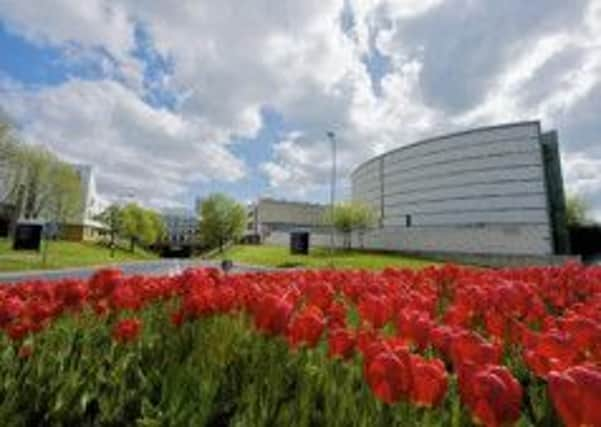Lancaster University lectures casts new light on stories of women accused of witchcraft


Now a public lecture held by Lancaster University is about to cast new light on the impact their story has had on thinking and writing ever since.
It will highlight how this 17th Century tale of sorcery helped spark ‘a fantasy of freedom’, which continued as a result of later incarcerations and trials held at the imposing prison and court inside the castle in the heart of the city.
Advertisement
Hide AdAdvertisement
Hide AdLeading university academics have revealed how these events through the centuries have helped to produce expressions of freedom, often, paradoxically opening the doors to new modes of thinking.
They are exploring these themes as part of a fascinating illustrated talk to be held within ‘Lancaster Castle’, as part of celebrations to mark the university’s 50th anniversary. The talk includes exclusive film of areas of the historic former prison sites not open to the public.
It compares texts from the 17th Century through to contemporary writings, all inspired by the prison, the castle and the trials.
The talk is being organised by the Department of English and Creative Writing at the university’s Faculty of Arts and Social Sciences (FASS).
Advertisement
Hide AdAdvertisement
Hide AdAmong the texts being analysed and discussed are court clerk Thomas Potts’ original record of the Lancashire Witches’ hearings and the founder of the Quaker movement George Fox’s historic hearing for blasphemy at the castle.
He was brought before the court at Lancaster Castle in 1652 for preaching and holding meetings, after creating a furore among the religious and political leaders of the area.
Lancaster University’s event includes a dramatisation of Fox’s hearing, as well as excerpts from ‘Women’s Speaking Justified’ by Margaret Fell, the ‘mother of Quakerism’.
Contemporary rewritings of the events of 1612 and modern writing inspired by past events at the castle will be read, dissected and discussed.
Advertisement
Hide AdAdvertisement
Hide AdDr Liz Oakley-Brown, Senior Lecturer in Shakespeare and Renaissance Writing at the university, is among those involved in the event.
She explained: “The fascination with the witches and this dark episode in Lancashire’s history continues and shows no signs of waning. The trial and the prison setting continue to inspire and influence writers even today.
“Our event works to highlight this ‘fantasy of freedom’ that the women’s narrative of sorcery offered to some, at least, and the powerful role that the trials have played, right down to present-day thinking.
“It starts with a dramatisation of the women’s testimonies, filmed in the Witches Tower at the castle prison, where they were incarcerated.
Advertisement
Hide AdAdvertisement
Hide AdProfessor Alison Findlay, Director of the Shakespeare Programme at Lancaster University and co-organiser of the event, added: “Our aim is also to explore the many ways in which events at the castle over the centuries have helped develop expressions of freedom – often opening the doors to new modes of thinking and feeling.
“From this bleak, foreboding place of incarceration came important ideas and works of literature that have helped forge how we act today.
“We are hoping to create something truly fascinating and informative with lots of thought-provoking interaction.
“The idea is that people will go away with a greater understanding of the part the witches, and others that were incarcerated here over the years, played in shaping thoughts surrounding freedom and thought.”